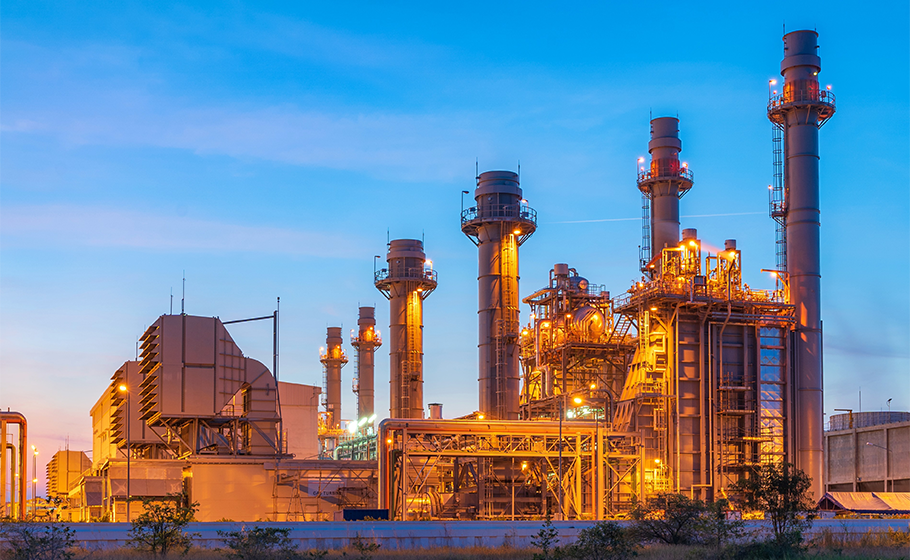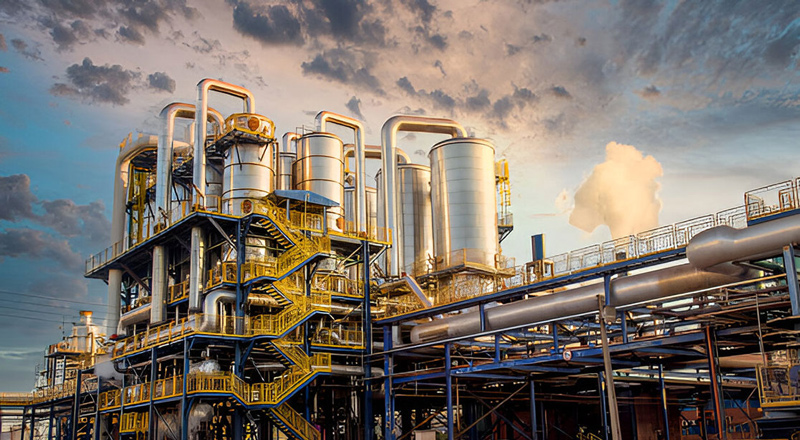1. Ball Valves: Known for their durability and tight sealing, ball valves are suitable for handling a variety of chemicals. They offer quick shut-off and are available in various ball valve materials, such as stainless steel, Hastelloy, and PTFE (Teflon), which provide excellent resistance to corrosion.
2. Butterfly Valves: These lightweight and reliable butterfly valves are cost-effective and suitable for handling large volumes of fluid. They are available in materials like PVC, CPVC, and various metals that can withstand corrosive chemicals.
3. Globe Valves: Known for their precise flow control, globe valve use is ideal for applications where throttling is necessary. They can be made from materials like stainless steel and other alloys that resist chemical corrosion.
4. Check Valves: These are used to prevent backflow and are available in materials that can withstand corrosive chemicals. The main check valve types are swing check, ball check, and lift check valves.
5. Gate Valves: Suitable for on/off control, gate valves are available in materials like stainless steel and other corrosion-resistant alloys. A common gate valve application does not involve throttling, as they are not typically used for this purpose.
6. Plug Valves: A common plug valve application takes advantage of their simple design, making them suitable for handling corrosive chemicals. They provide a tight seal and are available in materials like stainless steel and PTFE.

Precise Flow Control: Globe valves offer excellent throttling capabilities, allowing for precise control over the flow rate. This is particularly important in chemical processing, where accurate dosing and flow regulation are critical.
Good Shutoff Capability: These valves provide a tight seal when closed, minimizing the risk of leaks.
Versatility: Globe valves can handle a wide range of pressures and temperatures, making them suitable for various chemical processes. They can be used for both high-pressure and low-pressure applications.
Durability: Made from robust materials such as stainless steel, globe valves are resistant to corrosion and wear, which is crucial when dealing with aggressive chemicals.
Compatibility with Automation: Globe valves can be easily automated using actuators, allowing for integration into modern control systems for improved process efficiency and control.
Wide Range of Sizes: Available in various sizes, globe valves can be used in different parts of a chemical processing plant, from small-scale laboratory setups to large industrial systems.
Safety: Check valves prevent the reverse flow of chemicals, which can be hazardous and lead to contamination, equipment damage, or dangerous reactions.
System Integrity: By ensuring unidirectional flow, check valves help maintain the integrity of the chemical process and prevent cross-contamination between different process streams.
Protection of Equipment: Check valves protect pumps and compressors from damage caused by backflow, which can lead to costly repairs and downtime.
Material Compatibility: Check valves are available in a variety of materials (e.g., stainless steel, PVC, PTFE) to handle different types of chemicals, including corrosive and abrasive substances.
Design Options: Various designs (e.g., swing check, ball check, lift check) are available to suit different flow conditions and installation requirements.
Maintaining Pressure: Check valves help maintain pressure in the system by preventing backflow, which is crucial for processes that require a consistent pressure level.
Pressure Relief: In some configurations, check valves can act as pressure relief devices, protecting the system from overpressure conditions.
Full Bore Design: Gate valves provide a full bore, meaning the internal diameter of the valve is equal to the internal diameter of the pipe. This minimizes pressure drop and allows for smooth, unobstructed flow.
Tight Sealing: The gate valve provides a tight seal, which is essential in preventing leaks of potentially hazardous chemicals.
Durability and Longevity: Gate valves are robust and can handle high pressures and temperatures, making them suitable for the demanding conditions often found in chemical processing.
Versatility: They can be used with a wide range of fluids, including corrosive chemicals, slurries, and viscous fluids, depending on the materials of construction.
Material Options: Gate valves are available in a variety of materials, including stainless steel, carbon steel, and various alloys, which can be selected based on the specific chemical compatibility requirements of the process.
The Chemical Processing Industry (CPI) encompasses sectors that transform raw materials into valuable products through chemical, physical, or biological processes. It is integral to modern life, producing essentials from fuels and plastics to pharmaceuticals and food additives.
Petrochemicals: Converts oil/gas into plastics, fertilizers, and synthetic materials (e.g., ethylene for plastics).
Pharmaceuticals: Synthesizes drugs via organic chemistry and biotechnology (e.g., insulin production).
Agrochemicals: Produce pesticides, herbicides, and fertilizers (e.g., ammonia-based fertilizers).
Food Processing: Involves additives, preservatives, and flavorings (e.g., citric acid in beverages).
Specialty Chemicals: Creates adhesives, coatings, and catalysts (e.g., paint resins).
Polymers: Manufacture plastics, rubbers, and composites (e.g., polyethylene for packaging).

Valves are critical components in the Chemical Processing Industry (CPI), enabling precise control of fluid flow, pressure regulation, isolation, and safety in processes involving aggressive chemicals, high temperatures, and extreme pressures.
1. Gate Valves
Function: On/off control for liquids and gases; minimal pressure drop when fully open.
Design: A sliding gate (wedge) that lifts to allow flow.
Applications: Bulk fluid isolation (e.g., water, oil, or non-abrasive chemicals). Not ideal for throttling or slurries.
Materials: Stainless steel, cast iron, or exotic alloys (e.g., Hastelloy for corrosive fluids).
2. Globe Valves
Function: Precise flow regulation and throttling.
Design: A movable plug/disc that seats against a ring.
Applications: Process control in pipelines (e.g., adjusting flow rates of acids, steam). High-pressure systems (e.g., boiler feedwater).
Materials: Stainless steel, PTFE-lined for chemical resistance.
3. Ball Valves
Function: Quick shut-off with a 90° turn; low leakage risk.
Design: A rotating ball with a bore for flow.
Applications: Handling corrosive fluids (e.g., chlorine, acids). High-purity systems (e.g., pharmaceuticals, food-grade processes).
Variants: Full-bore (minimal pressure drop) or reduced-bore.
4. Butterfly Valves
Function: On/off or throttling in large pipelines.
Design: A rotating disc perpendicular to the flow.
Applications: Low-pressure slurries or wastewater. HVAC systems and bulk chemical transfer.
Materials: Rubber-lined, PTFE, or metal-seated for high temperatures (e.g., triple-offset butterfly valves).
5. Check Valves
Function: Prevent backflow (unidirectional flow).
Design: Swing, lift, or spring-loaded discs.
Applications: Pump discharge lines (e.g., preventing reverse flow).
High-pressure systems (e.g., steam lines).
6. Plug Valves
Function: On/off control for slurries or viscous fluids.
Design: A cylindrical or conical plug with a port.
Applications: Handling cements, wastewater, or abrasive media.
Lubricated or non-lubricated designs for sticky fluids.
Excellent Sealing Capabilities: Ball valves provide a tight seal, which is crucial for preventing leaks of potentially hazardous chemicals.
Durability and Longevity: Made from robust materials such as stainless steel, brass, or specialized alloys, ball valves are highly durable and resistant to corrosion, which is essential when dealing with aggressive chemicals.
Versatility: Ball valves are available in a wide range of sizes and materials, making them suitable for various chemical processing applications. They can handle different types of fluids, including gases, liquids, and slurries.
High Pressure and Temperature Tolerance: Ball valves can withstand high pressures and temperatures, making them suitable for demanding chemical processing environments.
Full Bore Design: Many ball valves feature a full bore design, meaning the internal diameter of the valve is the same as the pipeline. This design minimizes turbulence and pressure loss, which is beneficial for processes requiring smooth flow.
Compact Design: Butterfly valves have a compact and lightweight design, which makes them easy to install and requires less space compared to other types of valves like gate or globe valves.
Quick Operation: Butterfly valves can be opened or closed quickly, usually with a 90-degree turn of the handle or actuator. This rapid operation is beneficial in emergency situations where quick shut-off is required.
Versatility: They can handle a wide range of fluids, including corrosive chemicals, slurries, and gases. The materials used for the valve body and disc can be selected to suit specific chemical compatibilities.
Tight Sealing: Modern butterfly valves are designed to provide a tight seal, which is essential in preventing leaks of hazardous chemicals. High-performance butterfly valves can achieve bubble-tight shutoff.
Flow Regulation: Besides on/off control, butterfly valves can also be used for throttling or regulating flow. This makes them versatile for various applications within chemical processing.
Automation Compatibility: Butterfly valves can be easily automated with electric, pneumatic, or hydraulic actuators, allowing for remote control and integration into automated process control systems.
Tight Sealing: Plug valves provide a tight seal, which is essential for preventing leaks of potentially hazardous chemicals. The sealing surfaces are often made from materials that are resistant to chemical corrosion, ensuring long-term reliability.
Versatility: They are suitable for a wide range of applications, including handling corrosive and abrasive fluids. Different types of plug valves (e.g., lubricated, non-lubricated, eccentric, and expanding) can be selected based on specific process requirements.
Compact Size: Plug valves are generally more compact than other types of valves, such as gate or globe valves. This makes them ideal for installations where space is limited.
Durability: The robust construction of plug valves makes them suitable for high-pressure and high-temperature applications, which are common in chemical processing.
Material Compatibility: Plug valves can be constructed from a variety of materials, including stainless steel, Hastelloy, and other alloys, to ensure compatibility with different chemical media and to resist corrosion.
Multi-Port Options: Plug valves are available in multi-port configurations, allowing for the control of multiple flow paths with a single valve. This can simplify piping systems and reduce the number of valves needed.